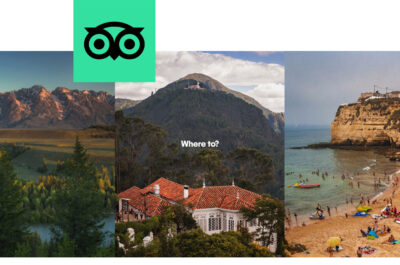A TrustYou heat mapping study found that given equal prices travelers are 3.9 times more likely to choose a hotel with a higher review score. And, even when hotel prices are increased for hotels with better review scores, travelers are more likely to book the hotel with the higher score despite the higher rate.
MUNICH, GERMANY and PARIS, FRANCE – While we know that travel reviews influence traveler decisions – 95% of travelers report using travel reviews regularly to make booking decisions – the impact of reviews on hotels goes much further than just making the final cut. For instance, a Cornell study found that a one-point increase in reputation (based on a five-point scale) may result in a hotel’s ability to raise room rates up to 11.2%. A TrustYou heat mapping study found that given equal prices travelers are 3.9 times more likely to choose a hotel with a higher review score. And, even when hotel prices are increased for hotels with better review scores, travelers are more likely to book the hotel with the higher score despite the higher rate. In fact, 76% of travelers said they were willing to pay more for a hotel with higher review scores.
Understanding the nuance of these correlations however – such as TripAdvisor bubble score vs. TripAdvisor popularity ranking, timeframe in which the review was written, brand, geographic market – can be challenging. In an effort to more thoroughly understand the way travel reviews influence hotel bookings, TrustYou launched a study in cooperation with AccorHotels and the Statistical Consulting Unit of LMU Munich, Germany’s premier academic and research institution. The study analyzes the TripAdvisor data of a sample of AccorHotels’ European and Asia-Pacific hotel bookings from November 2013 through September 2014.
Key Findings
- TripAdvisor hotel rankings are heavily influenced by a hotel’s percentage of five-bubble reviews. Hotel rankings on TripAdvisor also increase when the average review score increases but not as substantially as with 5-bubble reviews. These effects are stronger in Europe: if the share of 5-bubble reviews increases by 10%, the ranking improves by 11.3%.
- A hotel’s ranking, review score, and percentage of 5-bubble reviews each have a positive influence on the number of bookings. However, the level of influence of each factor varies between Europe and Asia-Pacific. For instance, the effect of the percentage of 5-bubble reviews is greater in Europe compared to Asia-Pacific, while the effect of the average review score is greater in Asia:
– If the share of 5-bubble reviews increases by 10%, the number of bookings increases by 10.2% in Europe and 7.8% in Asia-Pacific.
– If the average review score of the hotel improves by 10%, the number of bookings increases by 2.2% in Europe and 2.9% in Asia-Pacific.
Full Summary of Results
Variables & TripAdvisor Ranking
An analysis of the total number of reviews, 5-bubble reviews, percentage of 5-bubble reviews and average review score showed that the percentage of 5-star reviews had the greatest effect on TripAdvisor rankings for hotels in Europe. If the percentage of 5-bubble reviews is increased by 10 percent, the hotel’s ranking is improved by 11.3 points; whereas, if the average review score is increased by the same percentage, the hotel’s ranking is improved by 6.1%.
For Asia-Pacific, the results were slightly different. If 5-bubble reviews were increased 10 percentage points, the hotel’s ranking improved by 3.7%, while the same increase in average review score increased the hotel’s ranking by 4.3%.
Impact of Ranking, Review Score, & 5-bubble Reviews on Bookings & Rooms Sold
Ultimately, better rankings, better review scores, and more 5-bubble reviews equate to more bookings, though their importance varies based on the geographic market.
- If the hotel’s ranking on TripAdvisor is improved, the bookings will increase (similarly) in Europe and in Asia-Pacific.
- Both the average review score and percentage of 5-bubble reviews increase bookings in both Europe and Asia-Pacific. However, the average review score has a greater impact on bookings in Asia-Pacific, while the percentage of 5-bubble reviews has a greater impact on bookings in Europe.
- While the same overall results apply to Rooms Sold as to Bookings, one notable difference is that a higher average review score yielded only a marginal increase in rooms sold in Europe and a substantial increase in Asia-Pacific.
Rates
- For Europe, the percentage of 5-bubble reviews shows the greatest increase in rates, followed by a hotel’s average review score. An increase in the hotel’s ranking only marginally increases rates for hotels within this study.
- For Asia-Pacific, the percentage of 5-bubble reviews is the only criteria shown to increase rates. Better ranking and higher review scores actually decreased rates in Asia-Pacific hotels. A possible explanation is if a hotel charges higher room rates, travelers may have higher expectations and, if disappointed in their experience, give the property lower scores.
Booking Channels & Reputation
The study surveyed web and non-web channels to assess correlations between travel reviews and bookings via each channel. Ultimately, the study concludes that average review scores have more impact on bookings than rankings via the web channel.
- Higher TripAdvisor ranking yields more bookings on the web channel: If the ranking of a hotel on TripAdvisor is improved by 10%, the expected number of bookings on TripAdvisor increases by 4.6% in Europe and 5.7% in Asia-Pacific.
- Higher average review scores on TripAdvisor positively impact web bookings substantially in Europe and even more so in Asia-Pacific: If the average review score of a hotel on TripAdvisor is improved by 10%, the expected number of bookings on TripAdvisor increases by 9.0% in Europe and 15.0% in Asia-Pacific.
- In Europe, travel reviews appear to have a greater impact for the non-web channel.
- In Asia-Pacific, on the other hand, online reviews have the biggest impact on driving web bookings.
Longevity of Reviews
The effects of average review scores/ranking decrease over time. An increase in ranking will show an increase in the number of bookings initially of approximately 5.2% but four weeks out the impact decreases to 3.5%.
Theodore is the Co-Founder and Managing Editor of TravelDailyNews Media Network; his responsibilities include business development and planning for TravelDailyNews long-term opportunities.






































































































































